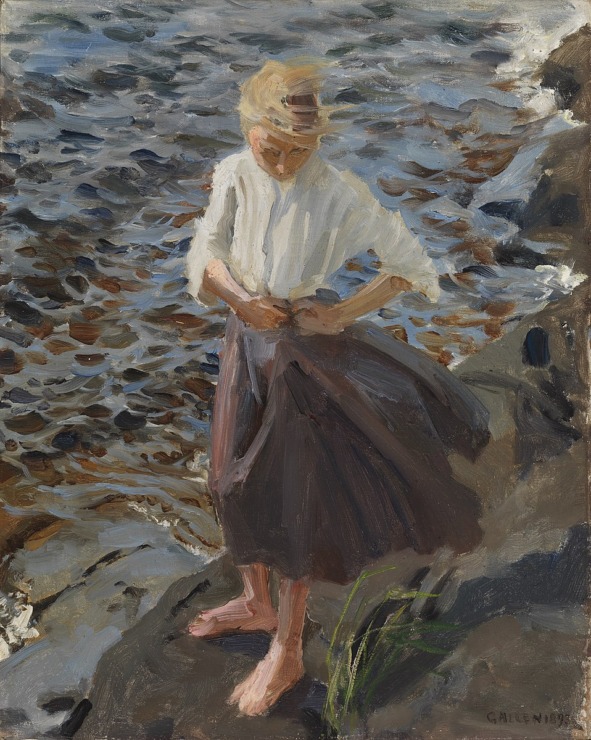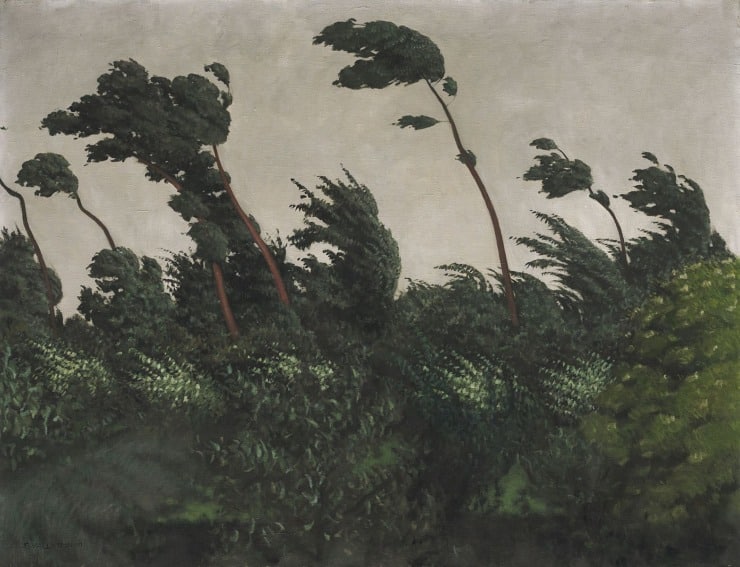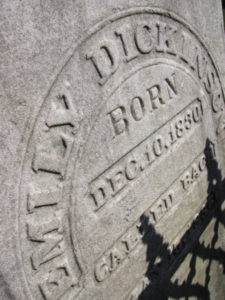< Return to Emily Dickinson Poems
XX. A Tempest
A TEMPEST.
An awful tempest mashed the air,
The clouds were gaunt and few;
A black, as of a spectre’s cloak,
Hid heaven and earth from view.
The creatures chuckled on the roofs
And whistled in the air,
And shook their fists and gnashed their teeth.
And swung their frenzied hair.
The morning lit, the birds arose;
The monster’s faded eyes
Turned slowly to his native coast,
And peace was Paradise!
-Emily Dickinson
Enjoy Artistic Representations of “A Tempest” by Emily Dickinson

A Girl Standing in the Wind by Akseli Gallen-Kallela, 1893.

The Wind by Félix Vallotton, 1910.
Listen to these Musical Interpretations of “A Tempest” by Emily Dickinson
Listen to these Readings of “A Tempest” by Emily Dickinson
About Emily Dickinson

Emily Dickinson estate in Amherst Massachusetts
Emily Dickinson was born in Amherst, MA, in 1830, the daughter of state and federal politician Edward Dickinson. A prolific poet, Dickinson was known to draft poems on the backs of envelopes and chocolate wrappers. Nearly 1800 of her poems were discovered by her family following her death, many in 40 handbound volumes she had sewn together, written in her own hand with her famously unorthodox punctuation.

Emily Dickinson & Susan Gilbert
The enigmatic poet is remembered as a recluse, rarely leaving the Dickinson estate. While she did receive callers at her home, conversations were often held from opposite sides of a closed door.
She lived with her sister, Lavinia, while her brother Austin and his wife, Susan Gilbert, lived down a narrow path on the property. Her writing reflects profound loneliness as well as a deep capacity for love and affection, much of which is believed to have been shared with Gilbert.
Her first collection of poems, Poems by Emily Dickinson, was published four years after her death, with Poems: Second Series and Poems: Third Series following in the next several years.

“Called Back”
Like Walt Whitman (who she reportedly never read), she is considered one of the most influential poets in the emergence of a distinctly American poetic voice.
She was born on December 10, 1830, and today visitors to Emily Dickinson’s grave can witness a lasting image of her perspective on life. The etching on her stone marking the date of her death—May 15, 1886—bears the words “Called Back.”
< Return to Emily Dickinson Poems
